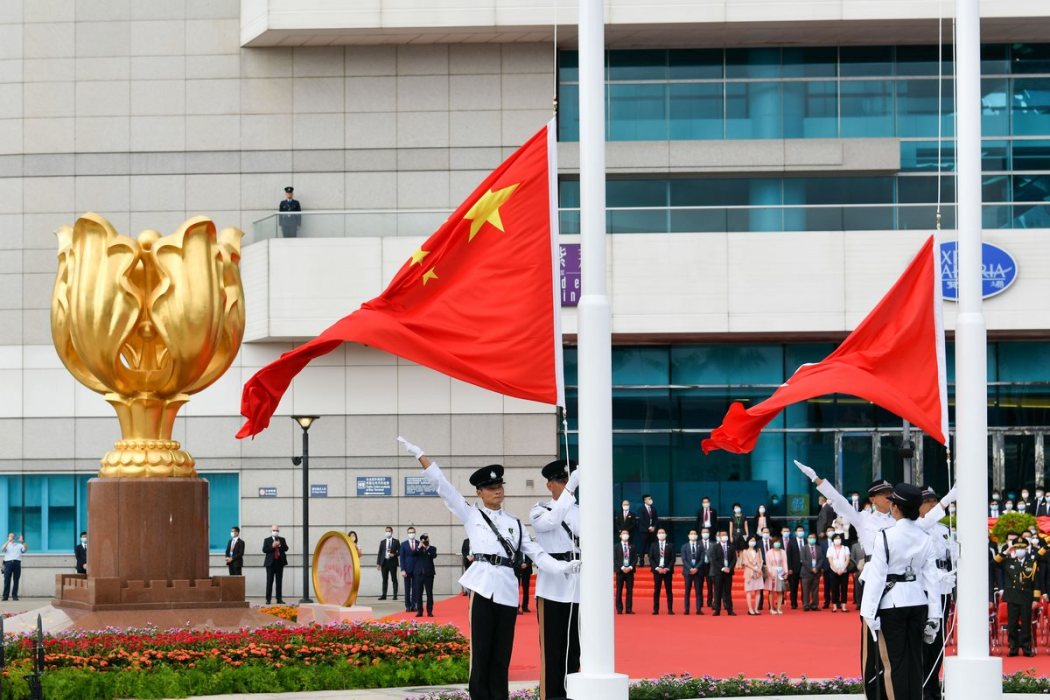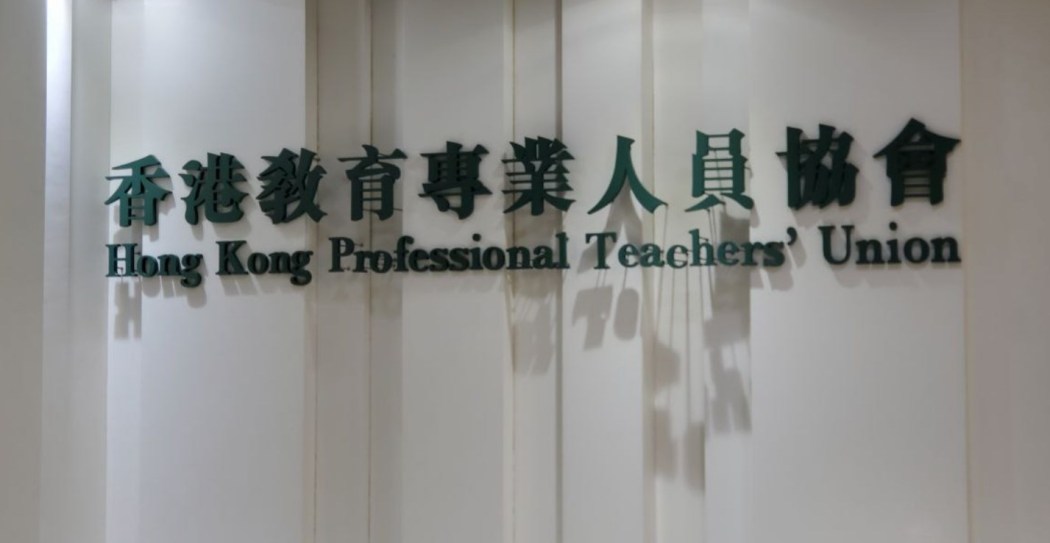All Hong Kong needs, we are told ad nauseam by mainland officials and their local proxies, is more patriotism—more appreciation, understanding and love of the motherland.
Our opposition politicians failed the patriotism test—and that’s why so many of them had to be thrown in jail.

Our teachers failed the patriotism test—and that’s why their largest union, the 95,000-strong Professional Teachers’ Union, had to be threatened and browbeaten into disbanding.
Hong Kong civic organisations also failed the patriotism test—and that’s why the Civil Human Rights Front, which had been the chief organiser of the now-defunct annual July I National Day protests, was coerced into folding its tent.
It’s also why the Hong Kong Alliance in Support of Patriotic Democratic Movements of China, the force behind the perennial June 4 candlelight vigil honouring those who died in the 1989 Tiananmen Square massacre—also now extinguished— is currently being hounded out of existence by our supercharged national security police. Indeed, the alliance even advertises its patriotism in its name, but that’s not good enough.
Finally, the most reprehensibly unpatriotic segment of Hong Kong society appears to be the city’s younger generation. At least that’s what Xu Kai, deputy director of education and technology at Beijing’s liaison office, had to say last week to a roomful of Hong Kong teachers gathered for an awards ceremony.
Xu described Hong Kong students as being obsessed with Western values such as freedom and democracy while remaining woefully ignorant of China’s history and current situation. He called on the teachers present at the event, hosted by the still-going-strong, pro-Beijing Federation of Education Workers, to “end the chaos of the education sector seen in recent years.”
But hold on, Mr Xu, here’s another very different take on the Hong Kong students you rounded on so heavily last Sunday: could the problem possibly be that our younger generation actually knows too much about Chinese history and contemporary politics, and that’s why they are so disenchanted?

And could the bigger, broader issue be that most Hongkongers are actually deeply patriotic but embrace an idea of patriotism that is fundamentally different from the kow-towing obedience to Communist Party rule being forced upon them by the central government officials who are now de facto running the city?
Hongkongers—from opposition politicians to teachers to civic activists and students—all made the mistake of choosing to believe in the 1984 Sino-British Joint Declaration. That agreement paved the way for the city’s 1997 handover from British to Chinese sovereignty under a “one country, two systems” arrangement that for at least 50 years was supposed to guarantee Hong Kong “a high degree of autonomy” as well as personal freedoms for its citizens that are simply nonexistent on the mainland.
These freedoms—of speech, press and assembly—were then enshrined in the Basic Law, Hong Kong’s mini-constitution, which also promised a gradual progress toward democracy that, like those guarantees of personal freedom, now seems dead in the water.
Those who grew up in post-handover Hong Kong felt free to express their opinions on all matters relevant to their lives, from their favourite video games and football teams to the inadequacies of their political leaders, both local and national. Their teachers encouraged them to do just that under the legal protections of the Basic Law. And their pro-democratic politicians and civic leaders showed them how to air their grievances in organised protests when they felt those leaders had fallen short of their duties and promises.
The July 1 protests became an integral part of Hong Kong culture, as did the June 4 candlelight Tiananmen memorial.

Whether or not you chose to take part, these overt demonstrations of freedom of expression and tolerance for dissent were part of what made post-handover Hong Kong such a special city in China. They were not unpatriotic. To the contrary, for many Hongkongers, they represented the highest form of patriotism—the kind that strives to build a better city and better country and, yes, squawks and agitates when that does not happen.
True, in recent years, as the callous arrogance and stubborn incompetence of Chief Executive Carrie Lam Cheng Yuet-ngor propelled Hong Kong into a crisis over her ill-fated extradition bill, things turned ugly and violent at times in the streets and on the city’s university campuses.
Misguided calls for independence, which had started under Lam’s predecessor—her peer in hauteur and obduracy, Leung Chun-ying—became more strident and clamorous.
But the so-called localist/independence movement was never more than a loosely knit, badly muddled fringe group that by no stretch of the imagination represented any real threat to Chinese rule over Hong Kong.
The crackdown on Hong Kong freedoms that it has prompted—now putatively justified by a sweeping national security law that seems to mean anything authorities want it to mean—has been a gross overreaction to a peril that never really existed. It betrays the deep-seated, abiding insecurity of Chinese officialdom, which sees destabilising foreign forces hiding in every nook and cranny of Hong Kong.
The violence that erupted during the months of anti-government protests in 2019 and 2020—which, let’s remember, included a heavy dose of police violence that has still not been properly addressed by the Lam administration—was never supported by ordinary Hongkongers, who want to see their city remain a free, prosperous and special place in China.
Patriotism, yes. Blind submission, no.
Correction 23:30: This op-ed has been corrected to state that sovereignty of Hong Kong was handed from the British to China.
Support HKFP | Policies & Ethics | Error/typo? | Contact Us | Newsletter | Transparency & Annual Report | Apps
| HKFP is an impartial platform & does not necessarily share the views of opinion writers or advertisers. HKFP presents a diversity of views & regularly invites figures across the political spectrum to write for us. Press freedom is guaranteed under the Basic Law, security law, Bill of Rights and Chinese constitution. Opinion pieces aim to point out errors or defects in the government, law or policies, or aim to suggest ideas or alterations via legal means without an intention of hatred, discontent or hostility against the authorities or other communities. |
Help safeguard press freedom & keep HKFP free for all readers by supporting our team

More HKFP OPINION:
HKFP has an impartial stance, transparent funding, and balanced coverage guided by an Ethics Code and Corrections Policy.
Support press freedom & help us surpass 1,000 monthly Patrons: 100% independent, governed by an ethics code & not-for-profit.










